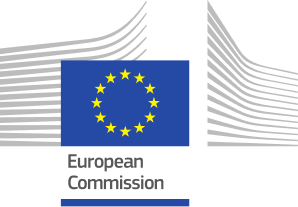NOTICIAS
IHCantabria participates in CoCliCo, the European project to analyse coastal risks and implement more efficient and sustainable adaptation measures
IHCantabria, together with seventeen other partner institutions such as Deltares (Netherlands), Sayers and partners LLP (UK) or the Global Climate Forum EV (Germany), is developing the Coastal Climate Core Service (CoCliCo) project funded by the European Commission in the H2020 call for proposals, which will last until 2026.
The aim of the project, led by BRGM – Bureau de Recherches Géologiques et Minières de France, is the creation of an open-source web platform, which will provide information on current and future climate change flood and erosion risks on the coast, their main forcings, and the effect of the implementation of adaptation measures on them. The platform will be applicable across Europe, combine new layers of high-quality geospatial information, and offer users the visualisation, download and analysis of multiple decision-oriented risk scenarios.
To address this challenge, CoCliCo brings together European organisations and academics with a proven track record in climate research, coastal risk assessment, impact modelling and large-scale climate change adaptation, as well as leading research and technologies in interoperable geospatial data management, decision sciences and risk communication.
Coastal flooding is a real concern affecting millions across Europe: it impacts not only human health but also infrastructures and their services, as many infrastructures are located close to the coast or low-lying areas.
Existing large-scale coastal climate services and platforms have successfully met the need for information and awareness-raising on coastal risk reduction. However, there is still a need for a decision-oriented platform for researchers, practitioners and decision-makers whose work and concern is identifying those coastal areas at risk of flooding and erosion. For this reason, CoCliCo aims to provide Europe with the necessary coastal climate services that integrate the most advanced information available regarding climate projections of marine variables to analyse risks and implement the most efficient and sustainable adaptation measures.
For Alexandra Toimil Silva, a postdoctoral researcher at the Institute of Environmental Hydraulics of the University of Cantabria, CoCliCo “is probably the most important project available today regarding impact, risk and adaptation to climate change and rising average sea levels on the coast of Europe”. In this sense, Toimil stressed that “the project aims to inform about the present and future coastal risks to improve decision-making about risk management and adaptation to climate change”.
IHCantabria in the project
In the framework of the COCLICO project, IHCantabria is leading work package 3, related to mean and extreme sea level projections. Existing databases are being compiled, new historical databases and multi-model forecasts will be developed, and will analyse changes in mean and extreme conditions.
Regional projections of mean sea level will include contributions from land ice mass loss and land-based water storage, local dynamics and coastal morphology, climate model results for ocean thermal expansion, and the dynamic response of the ocean and vertical land motion. IHCantabria will also develop new wave projections based on information from the latest IPCC report. The studies carried out in this work package will provide high-quality and high-resolution time series of sea level along the European coasts, generating the boundary conditions for the impact models used in work package 4.
On the other hand, IHCantabria will co-lead work package four related to the design of a flexible framework to analyse coastal erosion and flood risks in an integrated way along the entire European coast, collaborating in the co-design and validation of the climate services that will be generated in the framework of the project and in the development of an exploratory web tool that responds to the specific needs of the users and in the exploitation and dissemination actions in local areas. To this end, will use the databases of marine dynamics developed within the framework of the project, high-resolution topo-bathymetric information and process models.
To know more
Visite the project website Here
 This project has received funding from the European Union’s Horizon 2020 research and innovation programme under grant agreement No 101003598
This project has received funding from the European Union’s Horizon 2020 research and innovation programme under grant agreement No 101003598



